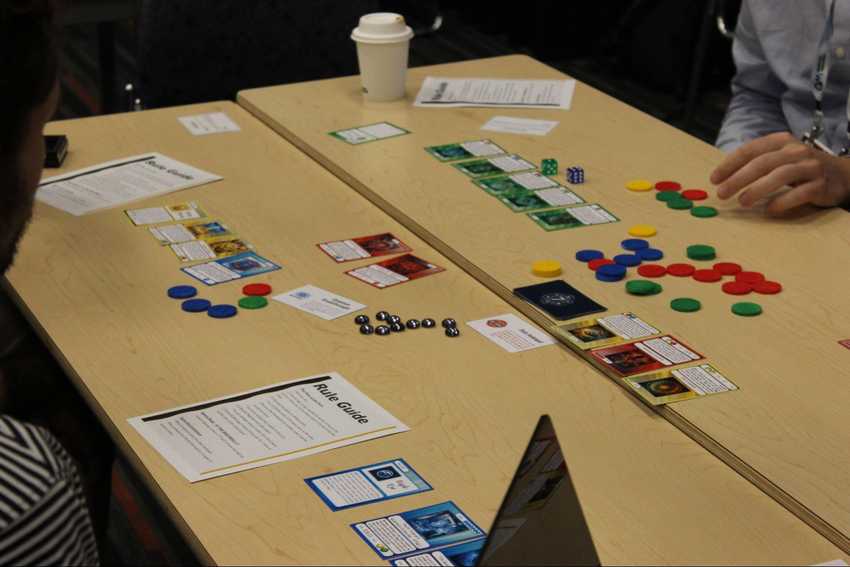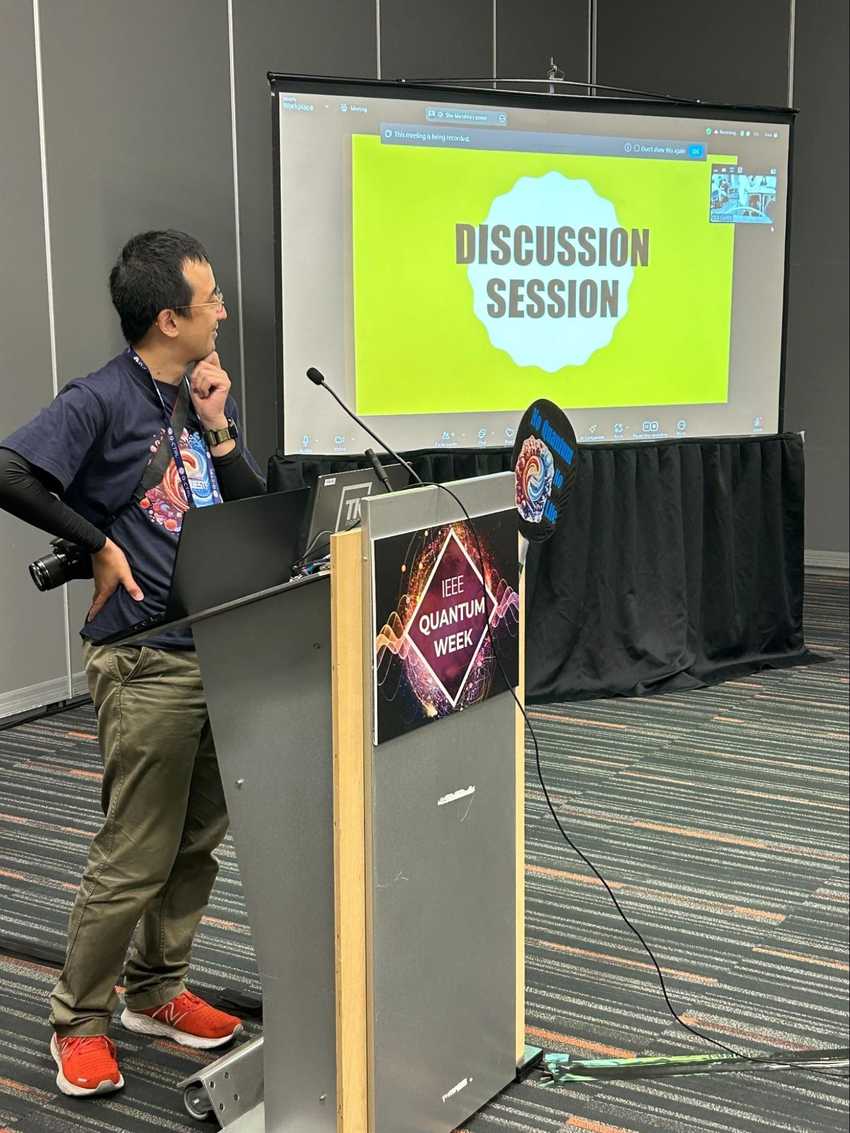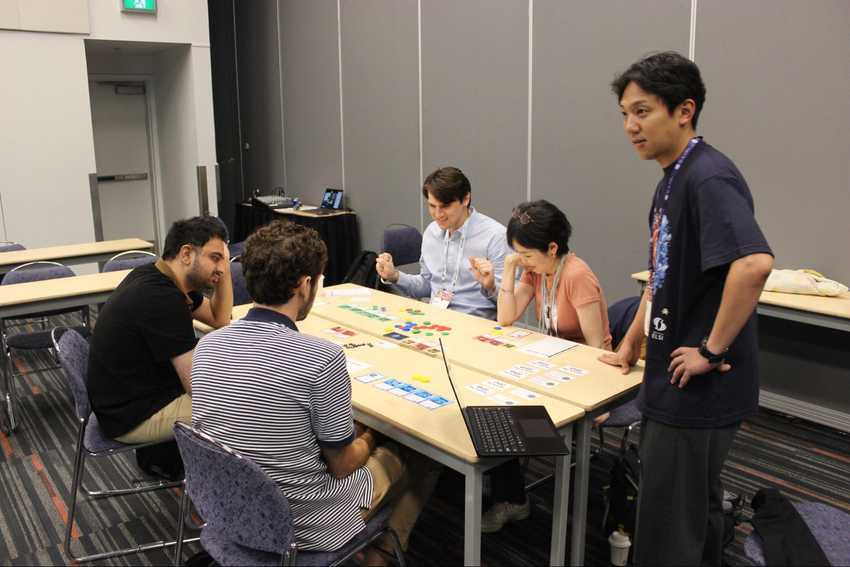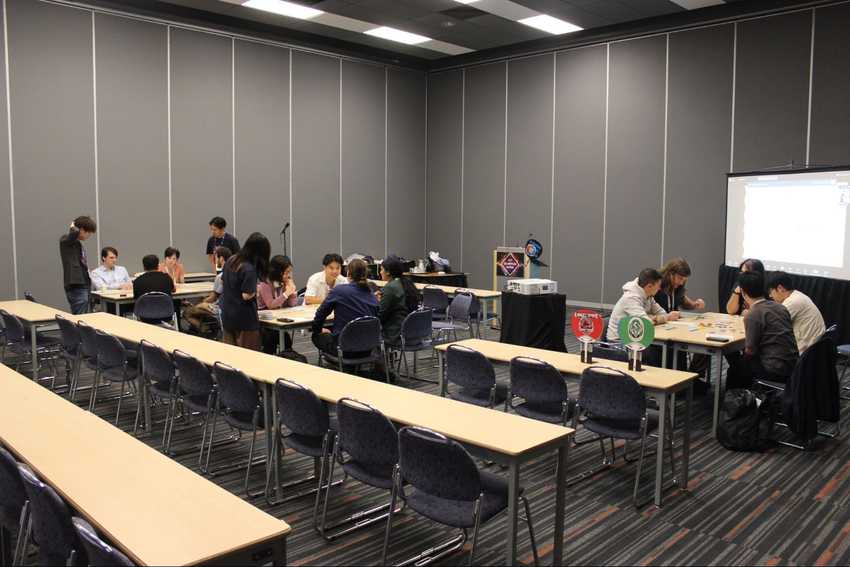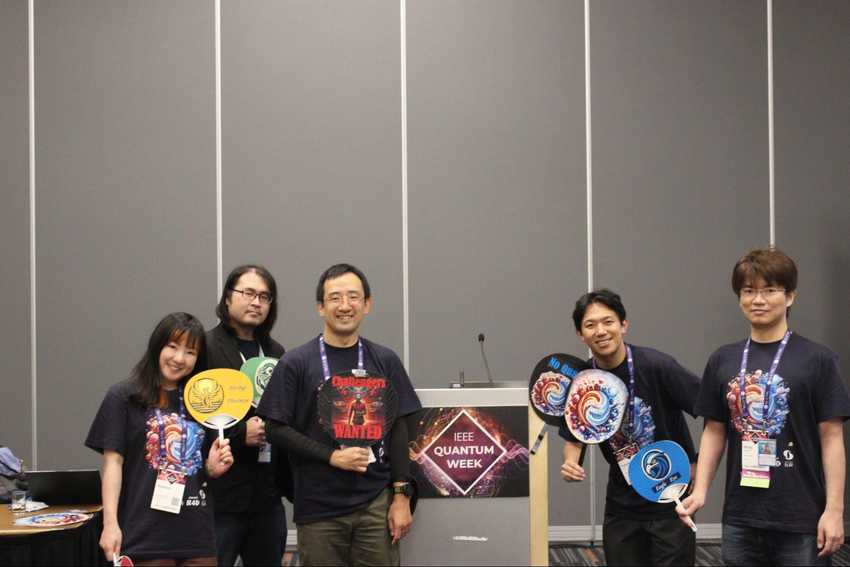At IEEE Quantum Week, held in Montréal, Canada from September 15 to 20, researchers from Mercari R4D and Osaka University’s Research Center on Ethical, Legal, and Social Issues (ELSI Center) held a Birds-of-a-Feather* (BoF) session titled Quantum Quest: Dialogue and Exploration of Quantum Governance Through a Card Game.
*Birds-of-a-Feather session: A session where people interested in a specific topic gather for open discussion.
Joint research on the ELSI of quantum technology
Since its inception in April 2023, research has advanced on “ELSI Practical Research to Accelerate Social Implementation of Cutting-edge Research and Business Areas Pioneered by Co-innovation: No Innovation without ELSI countermeasures,” a joint research project between Mercari R4D and the Research Center on Ethical, Legal, and Social Issues at Osaka University.
As a part of this larger joint research project, Mercari R4D senior researcher Shota Nagayama and research engineer Kentaro Teramoto have worked together with researchers from the ELSI Center to advance the project “Quantum Technology ELSI.” The project examines ethical, legal, and social issues (ELSI) from the early stages of new technology as it is developed, aiming to attain a future of equitable social implementation of quantum technology. The various research results that the project has proven to date are compiled in the ELSI NOTE articles linked below.
- ELSI NOTE No.29—23 Topics on “The Quantum Future”: Intensive interview with mercari R4D Quantum Information Technology Team, Mercari, Inc. (August 2023)
- ELSI NOTE No.24—Introducing literature on the ELSI (Ethical, Legal, and Social Issues) of quantum technologies: Focusing on 2021-2022 (December 2022)
- ELSI NOTE No.18—A Focus group interview survey of university students about their impressions of quantum technology (June 30, 2022)
Quantum Quest card game
The project is currently working on developing the card game Quantum Quest (QQ), which simulates the competitive atmosphere of quantum technology development. QQ aims to encourage people who play the game to become interested in the social implications of quantum technology development and to broaden their perspective about the various effects and responsibilities that quantum technology will have on future society.
The game is designed for four people. Each player takes on one of four roles based on an actual country and tries to get and keep more cards, referred to as “quantum assets,” than anyone else. The winner of the game is the player who attains quantum supremacy by holding the most quantum assets by the end of the game. During the game, players will experience various simulated events that can occur in the process of developing quantum technology such as a “quantum winter” and quantum technology becoming able to decipher all classical cryptography. Players are tasked with developing quantum technology while dealing with each event. In addition, the game is designed to allow the players to collaborate through negotiations.
Visit QQ’s introductory website here: https://sites.google.com/view/quantum-quest-card/
IEEE Quantum Week—A window into the BoF session
The 90-minute BoF session held for this event started with a simple explanation of the game, before giving session participants the chance to play a round of the QQ prototype. After the game ended, participants took part in a 40-minute group discussion.
In the gaming session, participants actually played Quantum Quest under the direction of a game master. Although this was the first time the participants had played the game, they negotiated with their fellow players proactively and worked through the game while dealing with the events that cropped up in each round. There were no empty seats at the three game tables where heated battles for quantum superiority unfolded.
After the games wrapped up, members from the Quantum ELSI Team gave a brief explanation of the intentions behind the design of Quantum Quest, and then each table held a 30-minute group discussion. In the discussions, the players first reviewed their experience of playing the game and then discussed two topics: 1) How is the quantum world as described in the game different from the real world? 2) What would the ideal future of quantum technology look like?
As the discussion unfolded, the participants gave feedback not just on the game, but also on the quantum future. Comments ranged from things like “I think that development shouldn’t be just for national governments, but should also involve big tech companies focusing their attention on this technology,” and “it’s likely the case that the ideal way of developing quantum technology and the conditions for victory differ depending on the role you have in the game. I think that’s true in the real world too.” Based on the insights from this session, researchers will continue to develop the game in order to create and release their final version.
Introduction to IEEE Quantum Week
IEEE Quantum Week is a conference that brings together the world’s top talent in the field of quantum information engineering. As an institute focused on engineering, the IEEE launched this event in 2020 to address the growing trend of using quantum information technology in engineering and the shift away from pure science applications. 2024 marked the fifth IEEE Quantum Week and featured a wide variety of exhibits including research presentations, poster presentations, panel sessions, and birds-of-a-feather sessions.
- See details on IEEE Quantum Week here: https://qce.quantum.ieee.org/2024/
Academic presentation information
- Presentation title
- Speakers
- Sho Morishita (Yamanashi Prefectural University/Osaka University), Yusuke Nagato (Osaka University), Konomi Higo (Osaka University/Mercari, Inc.), Kentaro Teramoto (Mercari, inc.), and Shota Nagayama (Mercari, Inc./Keio University)
- Date and time
- Wednesday, September 18, 2024, 10:00–11:30 (EST)
- Location
- Palais des Congrès (Montréal, Canada)

